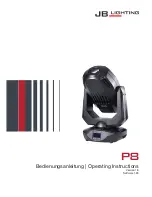
64
/
88
Health and Safety
•
Keep sparks and fire away from
the battery. The battery emits ex-
plosive gas that can cause an ex-
plosion.
•
Wear eye protection and rubber
gloves while working on the bat-
tery, otherwise the battery hand-
control may cause burn and seri-
ous damage including blindness in
your eyes.
•
Under no circumstances allow
children to handle the battery.
Make sure that anyone dealing
with the battery is familiar with the
proper use of the battery and its
hazards.
•
Pay close attention to the battery
electrolyte as it contains diluted
sulfuric acid. Contact with your
skin and eyes may cause burns or
loss of eyesight.
•
Carefully read and understand this
manual before working on the bat-
tery. Failure to follow instructions
may result in injury and vehicle
damage.
•
Do not use the battery if the elec-
trolyte level is at or below the rec-
ommended level. Using the bat-
tery with a low electrolyte level can
cause explosion and serious in-
jury.
If there are wasted oil and wasted oil
contact materials in your vehicle, pay at-
tention to the following warnings.
When disposing of products/wastes such
as used oil, hydraulic oil, do not discharge
into channels, sewers, landfills, or soil. This
is against the legislation of all countries.
This rule also applies to empty containers
in contact with oil, chemical materials, and
waste of cleaning cloths. Take these
wastes to the relevant authorities or the
most appropriate service point for disposal.
If your vehicle tire has expired;
The end-of-life tire must be disposed of in
accordance with the regulations. For this,
take your expired tire to the relevant author-
ities or appropriate service points.
If you carry dangerous chemicals in
your vehicle;
In case of an accident or emergency that
may occur during transportation, act in ac-
cordance with the Written Instructions of
the ADR Legislation.
From the trailer's life-cycle perspective, it is
important to recycle the end-of-life vehicle
in an environmentally friendly manner. A
large part of the trailer consists of recycla-
ble materials. Contact the approved com-
pany and appropriate service for the recy-
cling of the trailer that has expired.
5.5. Cleaning of the Vehicle
After transporting certain mate-
rials which are dangerous to
human health, it is too risky for
health to enter to the silo tank for clea-
ning. Only enter to the silo tank if it is
absolutely necessary. Before entering
to the silo tank, perform a gas measure-
ment according to the applicable regula-
tions.
Make sure the silo vehicle is clean by chec-
king it on a daily basis.
These controls should be applied especially
to couplings and to equipment used for loa-
ding and unloading. Dirt and product resi-
dues should be cleaned immediately.
Driver's cab should be kept clean and in or-
der.
Warning signs, reminders and sticky labels
should be kept clean.
Damaged and invisible signs and labels
should be replaced as soon as possible.
Make sure that the silo is clea-
ned by authorized services and
cleaning firms that are specia-
lists on cleaning the silos.
Summary of Contents for SILO Series
Page 1: ......
Page 89: ...88 88...
















































